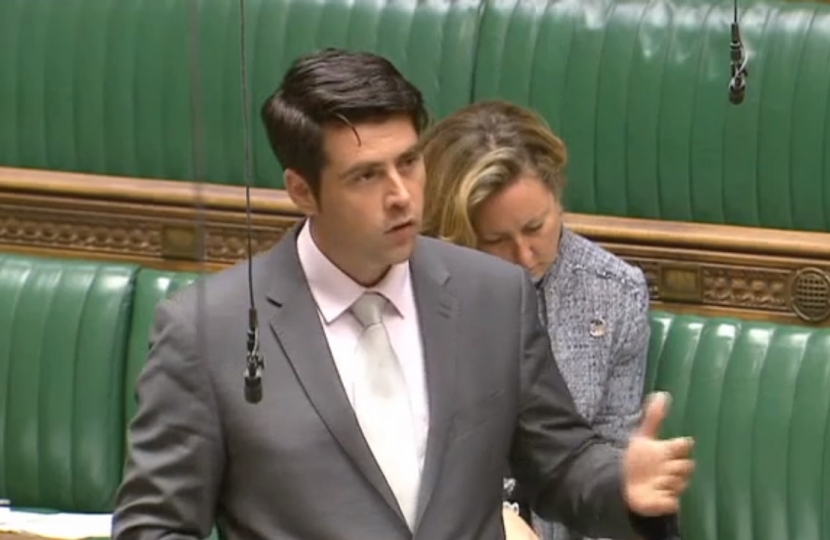
North Cornwall's MP Scott Mann has urged health bosses in Cornwall to protect community hospitals ahead of transformation plans being published later this year.
As part of a national drive to integrate health and social care services and avoid financial deficits, Sustainability and Transformation Plans (STPs) are being drawn up in all local authority areas.
Writing to the Kernow Clinical Commissioning Group (KCCG) and Cornwall Council, who are jointly conducting an STP for Cornwall and the Isles of Scilly, Scott Mann described hospitals in Bodmin, Bude and Launceston as “vital assets” which “must remain in place to offer services to their growing populations”.
Scott said it would be a “retrograde step to slim down the number of facilities available to the public when demand is only going to rise”.
Writing to health bosses, Scott Mann said:
“In North Cornwall, hospitals in Bodmin, Bude and Launceston are vital assets to their towns and their surrounding villages. They must remain in place to offer services to their growing populations, and with the population of Cornwall as a whole increasing, it would be a retrograde step to slim down the number of facilities available to the public when demand is only going to rise.
“It is also these facilities, plus GP surgeries, which assist with preventative care so that bed numbers remain flexible at the Royal Cornwall Hospital in Truro, Derriford Hospital in Plymouth and North Devon District Hospital in Barnstaple. Having a community-focussed model will help prevent ‘bed blocking’ in these two cities while keeping people closer to home. Care pathways are very important to making sure that patients get the care they need which helps free-up the main hospitals.
“Due to the sparseness of our Cornish communities, it is vital that services are deployed as effectively and efficiently as possible to towns and villages with the money and resources available.
“Although Cornwall is served by two big A&E departments in Truro and Plymouth, both are located in large urban cities which alone have high demands on health care. Our rural communities rely on local health care services such as medical centres and community hospitals. This not only helps relieve pressure on the main A&E departments, but it also allows people to remain in their communities when seeking medical advice and treatment.”
In his letter, Scott Mann also highlighted the importance of distinguishing between cuts to budgets and deficit reduction when discussing the STP.
He said:
“Unfortunately, there is an increasing narrative that NHS budgets are being cut in Cornwall. This is not the case … this STP is aimed at deficit prevention while budgets continue to increase.”
Figures obtained from the independent House of Commons Library show that NHS funding in Cornwall, both in cash terms and ‘real terms’, is increasing year-on-year.
In 2013/14, NHS Kernow was allocated just over £670 million. By 2020/21, it is predicted to be £805 million – an increase of over 20 per cent. In 'real terms' when taking inflation into account, spending will increase from £687 million in 2013/14 to £740 million in 2020/21.
The House of Commons Library also confirmed that NHS funding in Cornwall is above the national average.
Concluding his letter, Scott Mann said:
“Cornwall has been on the front foot when it comes to integration of health and social care. The Devolution Deal sees power being handed from Whitehall to County Hall, because it is people on the ground who have the best local knowledge for local needs.
“I trust that NHS Kernow and Cornwall Council will do all they can to protect health services and make the delivery of care more efficient and less bureaucratic, and I look forward to hearing their future proposals.”
Scott will also be making representation to officials overseeing the Wider Devon STP to highlight the importance of frontline services at North Devon District Hospital in Barnstaple.

